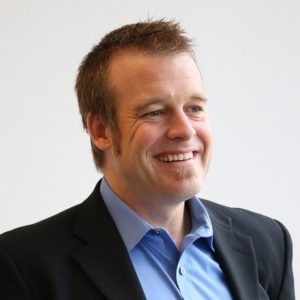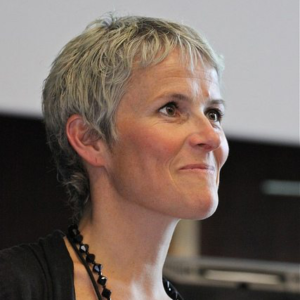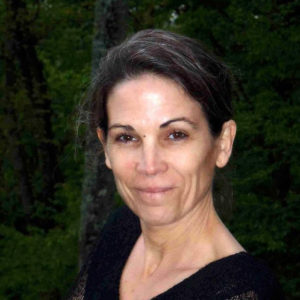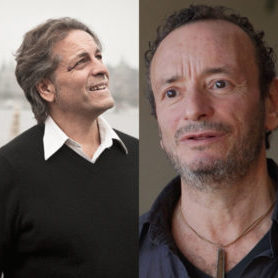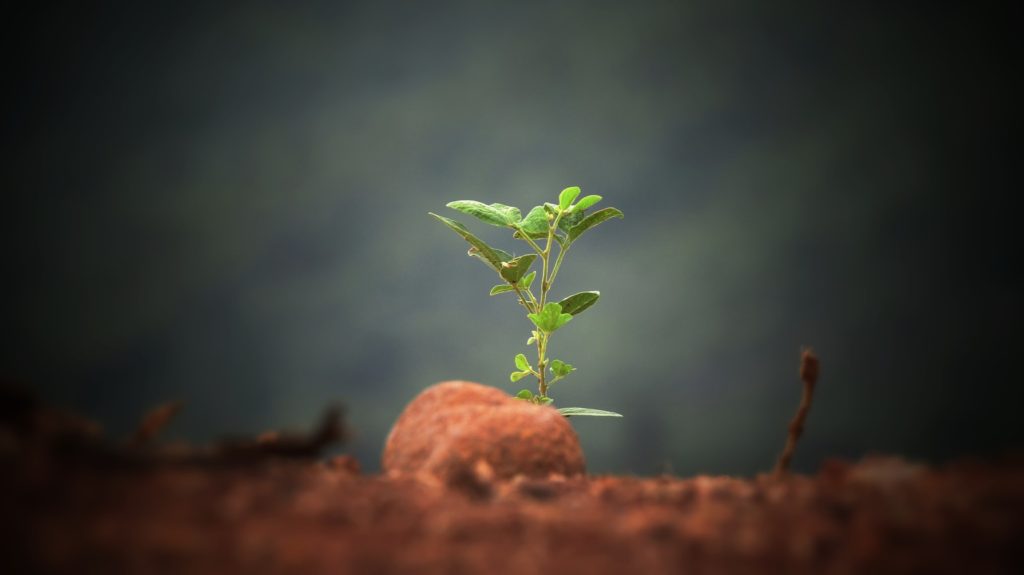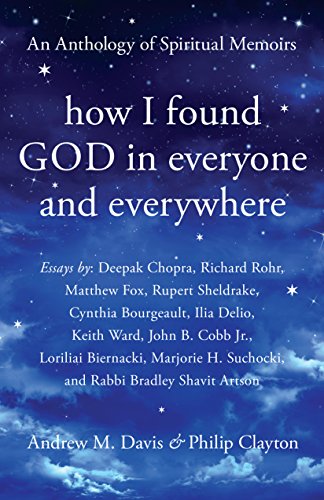Organic Marxism: An Alternative to Capitalism and Ecological Catastrophe by Philip Clayton | Goodreads

Want to Read
Rate this book
1 of 5 stars2 of 5 stars3 of 5 stars4 of 5 stars5 of 5 stars
Preview
Organic Marxism: An Alternative to Capitalism and Ecological Catastrophe (Toward Ecological Civilization)
by
Philip Clayton,
Justin Heinzekehr
Paperback, 276 pages
Published September 19th 2014 by Process Century Press
ISBN
194044702X (ISBN13: 9781940447025)
Edition Language
September 3, 2019 – Shelved
COMMUNITY REVIEWS
Showing 1-46
3.88 ·
Rating details
· 16 ratings · 1 review
Sort order

Mar 21, 2015Ted rated it it was amazing
Shelves: philosophy, economics, environment, religion-mythology-rationalism, have,radical-politics
One can hope that this book, together with the growing awareness of what capitalism is doing to the 99 percent and to the world’s ecosystems, will have some effect even here [in Europe and North America] in slowing the headlong rush toward global destruction.
from the Foreword by John B. Cobb
The authors:
are both connected with the Claremont School of Theology, a graduate school in Claremont California. Clayton has written or edited 22 books. Heinzekehr is a doctoral candidate in religion.
Process philosophy
In chapter 1 the authors explain that one of the main conceptual resources they have used in the book is “process philosophy”.
To our knowledge, this is the first book on Marxism written from a process perspective. Some Chinese Marxists are already interpreting process philosophy as a new school within contemporary Western Marxism. As process philosophy begins to play a larger and larger role in China, it is important to think carefully about the ways that it leads to a deeper understanding of Marxist principles.
For example, it is highly significant that process thinking appears in many places in traditional Chinese philosophy, in Confucian and Daoist thinkers, and even in the most ancient text in the Chinese philosophical tradition, the I Jing.
This appears even earlier in the text than any hint of what is actually meant by “process philosophy” – as though the primary audience they are talking to knows already – which Chinese readers apparently would. (The Chinese translation appeared last year, I think.)
According to Wikipedia, process philosophy is nowadays associated, as a “school” of philosophy, with Alfred North Whitehead. The key point of this philosophical outlook is in direct ontological conflict with the main thrust of Greek philosophy which has come down to the West from Plato and Aristotle – that the “really real” is unchanging ideal form, or some type of primitive matter. In either case, the changes which we perceive in the world are accidental, phantasmal properties of the unchanging, true objects of knowledge.

Whitehead
Process philosophy, on the other hand, argues that the constant changes which we perceive in all about us are the very cornerstone of reality, and that the “unchanging” is rather the phantasmal that we mistakenly posit in our minds as ultimate reality.
Many thinkers have been identified nowadays as fitting into “process” thinking, though previously the term itself was not used. These include Heraclitus, Nietzsche, Henri Bergson, Martin Heidegger, Charles Sanders Peirce. Process philosophy covers not just scientific intuitions and experiences, but is used as a conceptual bridge to facilitate discussions among religion, philosophy, and science.
The China Connection
No nation is mentioned more often in the book than China. There are several narrative paths which intertwine to produce this theme, ranging in time from over a millennium past, through the development of modern China by Mao, and finally to contemporary China and its policies and problems during the last couple decades.
The theme is mentioned first in a short forward written by John B. Cobb. Cobb, after commenting on the difficulties of appealing to an American audience with a book promoting Marxism of any description, writes that the book “will have a much easier time gaining a hearing in China.” Well, I suppose, but why state the seemingly obvious?
He continues, “China is not now trying to implement any past form of Marxism. It knows the problems from painful experience. But it has not given up on Marxism itself.”

John B. Cobb
This man, whom I’d never heard of, is perhaps the leading process thinker in the world today. He has been instrumental in founding thirty centers for Process Studies, twenty-three of which are in China! I refer the reader to the Wiki link in the previous sentence, and also to this site, for a synopsis ofOrganic Marxism by the author.
The authors examine Marx's writings in the context of the Europe he lived in at the time, and compare that context to the China that exists today. They recommend that rather than Chinese thinkers simply quoting Marx to justify policy, what should be done is to examine the thoughts that Marx had, but in a new context of China, particularly in regard to the philosophical and religious traditions that make China a very different place from Europe of the nineteenth century. They link Marxian findings to the traditions of Confucianism, Taoism, and Buddhism.
The objective of the authors is to supply a theological/philosophical underpinning to support economic policies which could help China turn away from a course that, in conjunction with Western-style capitalism, is propelling the world toward environmental disaster.
The book
PART ONE: WHY MARXISM?
Ch. 1 – Introducing Organic Marxism
Ch. 2 – Why Not Capitalism? Historical Origins
Ch. 3 – Why Not Capitalism? Contemporary Practices and their Consequences
PART TWO: FROM MODERN TO POSTMODERN MARXISM
Ch. 4 – Marxism in the Industrial Age and Organic Marxism
Ch. 5 – From German Marxism to Culturally Embedded Marxism
Ch. 6 – Deconstructive Postmodernism and Critical Marxism
Ch. 7 – Rethinking Freedom and Human Rights after Liberalism
Ch. 8 – Democracy and Justice: A Post-Liberal Perspective
PART THREE: ORGANIC MARXISM
Ch. 9 – Marxism and the Ecological Sciences: The Science of Organic Systems
Ch. 10 – Organic Marxism, Process Philosophy, and Chinese Thought
Ch. 11 – Rethinking Marxism in a Time of Ecological Crisis
Ch. 12 – The Ecology of Organic Marxism
Ch. 13 – The Praxis of Organic Marxism
Ch. 14 – What Does Ecological Civilization Look Like?
1st section Critique of Capitalism
This section has an introductory chapter on “Organic” Marxism, followed by two chapters marshalling the authors’ criticisms of capitalism. In the first of these the authors level criticisms of Adam Smith’s Wealth of Nations. They also explore writings which laid the groundwork for this famous work, or that later reinforced what Smith had erected. These include writers as diverse as Plato, Machiavelli, Hobbes, John Locke, and John Stuart Mill. Negative views of man, and/or the necessity of society protecting (above all else) man’s property are views shared by these thinkers.
In analyzing Smith’s work, the authors criticize not only Smith’s approval that the Market works to enforce and satisfy man’s greed to accumulate capital and property, but also his claim that it will at the same time, by “the invisible hand”, produce ends in society which are completely desirable, though unintended by the individual.
Smith wants us to believe that no one needs to act consciously in the public interest and that policies aimed for the common good are doomed to fail. Nevertheless, miraculously, those who promote their own private interests, those who seek to become as wealthy as possible, end up producing the highest possible level of common good.
In the third chapter of the first section, the consequences of the West’s acceptance of Smith’s capitalism are explored. Although the authors don’t make this point, they would surely admit that Smith was not quite so doctrinaire as his work is nowadays viewed (primarily by people who have never read it). What they do point out is that the undiluted, laissez fairversion of capitalism which has been made the standard version since Smith, and most particularly in the most recent half-century, has produced gross inequality of both income and purchasing power within societies, and between societies across the world. And they lament the way in which religion has often waved the banner of capitalism (see Max Weber’s The Protestant Ethic and the Spirit of Capitalism). They talk of the way that the discredited Social Darwinism of the late 18th and early 19th centuries was used to explain and justify racism and colonialism, and still is used as a justification for the view that “those who work hard will succeed, and those who have not succeeded have not worked hard.”
2nd section A New Marxism
The five chapters in this section compare the “industrial Marxism” which resulted from Marx and Engels’ original writings, to what the authors perceive as the necessary updating of that for the postindustrial 21st century, what they call postmodern Marxism. (The term in the book’s title,organic Marxism, appears to me to be almost equivalent to “postmodern Marxism”, though there may be some differences discernible by their China audience too subtle for me to catch.) I think which of the two modifiers of “Marxism” the authors use is determined by whether they wish to highlight the general “postmodernist” aspect, or the more particular (though still perhaps equally vague) “organic” aspect.
The chapters here that I enjoyed most were 4 and 6. All chapters were underlined densely, but those two held my attention more than the others. In the last section of ch.4, called, interestingly, Postmodern Organic Marxism (using both modifiers at once), the authors list four aspects of industrial Marxism that need rethinking and revision for the 21st century.
(1) In the mid-nineteenth century, many people believed that the principles of history are deterministic; they can be grasped and codified in a single, all-comprehensive system. They aren’t, and they can’t be.
(2) Marx and his early followers believed that workers, once they are sufficiently informed, will act in their own best interest and rise up against the injustices of their employers and the capitalist system. This by no means obviously the case after 150 years.
(3) Marx’s work as a social theorist, a historian of economics, and a student of the class struggle remains relevant… His efforts … to prove the doctrine of dialectic materialism using the categories of Hegel’s philosophy are less enduring. At worst, they produce a “vulgar Marxism” that clashes with the scientific spirit of his work and with core assumptions of an ecological civilization.
(4) According to classical Marxism, the natural world forms a backdrop to the class struggle, but only as the “stuff” of materialism, the contributor of raw materials, and the occasion for work. But in fact humans are not the only victims of capitalist excesses, the ecological world must be taken into account.
Chapter 6 focuses on the views of Jacques Derrida, Slavoj Zizek, and David Harvey, the last of whom I’d never heard of, “three of the most well-known Western interpreters of Marxism of the last few decades.” The deconstructive approaches of the first two, and Harvey’s avowedly scientific approach, are criticized thus: “Ironically, both [approaches] pull back from the concrete examples and situations that are the daily bread of policymakers in local, provincial, and national governments. How will Marxist ideals be useful to the ‘art of government’ if they become limited by definition to the purely abstract and scientific on the one side, and the purely ideal or deconstructive on the other?

David Harvey
“Once again, it appears, Western thinkers succeed at formulating the extreme possibilities, the excesses on both sides, while failing to find the blended position that would represent a balance between them. They express the dissonance of the present global situation but shy away from addressing the practical issues that policymakers face.”
3rd section Organic Marxism
The last section is filled with interesting stuff. Chapter 9 looks at the organic approach to living systems, in which the organic model allows science to move “beyond mechanism” (the reductionist paradigm).
Just as the social sciences need to describe and explain the personal dimension of human existence, including the complex worlds of meaning that humans create and live within, so also the biological sciences can now describe organisms as organisms, that is, as agents acting with their particular ecosystems.The authors then examine studies and books in several areas of science, the first, the “physical sciences”, not so interesting as the others: systems biology, ecosystems theory, and “the contemporary study of consciousness”. See the list of books that emerged from this chapter in the Books section of the review.
Chapter 10 is perhaps the most interesting in the book. Process philosophy, which I’d never heard of, goes back to Alfred North Whitehead, who I only knew as co-author, with Bertrand Russell, of Principia Mathematica. But according to Wiki, he is even better known today as the founder of process philosophy (see https://en.wikipedia.org/wiki/Process...). And process philosophy plays a really big role in Chinese thought, and in Organic Marxism! Super chapter!
The remaining chapters address such topics as Marx’s attitude to the environment, as argued by John Bellamy Foster in Marx's Ecology; the manifesto and praxis of Organic Marxism, and in the concluding chapter, near the end, the following:
The goals of the environmental movement can no longer be limited to symbolic steps, supplying band-aids to a dying planet. Nothing less than civilizational change will suffice Movement leaders around the planet are beginning to lay the foundations for a new ecological civilization because they realize the need for fundamental changes in how people think and how we organize human society, both locally and globally.
… The social, political, and economic principles of modernity are (sadly) still often unrecognized. Marx provided some of the most effective tools for uncovering them, which is why we have argued that Marxist analyses are indispensable. But transformative socialist principles need to be embedded in cultures and embodied in post-capitalist communities. For that reason we have used “organic” as the umbrella term to the express the central features of the civilization that is even now being born on this planet: sustainable, culturally and historically embedded, constructively post-modern, process-based, fundamentally local, communal in its orientation: in a word: ecological.
Personal remarks
I was surprised at how affected I was with this book. The narrative was, to me, a bit uneven. Yet, if I could make the Organic Marxist praxis happen in the U.S.A., I hope I would do it. That’s despite the fact that I personally am much better off than most people in this country, to say nothing of the average citizen of our planet.
It's difficult to see how it could ever happen, though. Too many millions in this country think that socialism=communism, Marx=Stalin; and view capitalism as the only economic system that embraces “freedom”. That is, freedom from interference while one pursues unbridled self-interest. Freedom to do whatever one wants with one’s wealth and one’s property. And in this country, that freedom tends to extend from the private to the corporate sphere. Thus, particularly NOW in April of 2017, we are waiting to see how far freedom to pollute, freedom to exploit, freedom “from” taxation, the entire corporate/so-called libertarian agenda will be pushed.
I can see where it might be easy to dismiss this book as a niche view among a club of theologians at a small California graduate school. However, Mr. Cobb’s real and important connections with Chinese academics and policy makers would argue that, niche or no, it could be a niche that is going to have a growing influence in China.
And, as Cobb says in his Foreword, “what happens in China is of historic importance to the world.”
====
Just days ago, Pope Francis presented a TED talk to the annual symposium.
https://www.ted.com/talks/pope_franci...
Quite inspiring. And I believe it reinforces my view that this pope would react favorably to Organic Marxism. Of course the book is not antagonistic towards religion, it's written by theologians. And in their emphasis on process philosophy (and connection to process theology) they join Whitehead in attempting to bring separate realms - society, science, religion - together to synthesize their visions and accomplishments, producing a sum greater than the parts. The pope spoke phrases - "every element connects with everything else", "life is interactions", "everything is connected" - that clearly express a fundamental agreement with the process outlook.
BOOKS of interest
See https://www.goodreads.com/story/show/...
. . . . . . . . . . . . . . . . . . . .
Previous review: Reluctant Fundamentalist
Random review: Invitation to the Dance Anthony Powell's dance, that is
Next review: The Wine-Dark Sea short stories
Previous library review: Communism, Fascism and Democracy readings in three systems
Next library review: Anarchism A Very Short Introduction
(less)
flag40 likes · Like · see review


Follow the Author
Justin Heinzekehr
+ Follow
This revolutionary book fuses the enduring legacy of socialism—government for the common good—with the best of the environmental movement and the newest insights from sustainability studies. The result is a manifesto in the tradition of Bill McKibben’s Eaarth—a roadmap forward in the face of the growing environmental catastrophe, which is the most complex crisis humanity has ever faced. Catherine Keller writes, “What an unexpected, discomforting and important work! If Marxism seemed to be abandoned in the West to a few academic leftists and nostalgic activists, the authors bring it roaring back into relevance.”
American conservatives like to say that Marxism was destroyed by its opponents and by the mistakes of Marxist governments. Organic Marxism provides the definitive answer to this charge. New economic evidence reveals that Marx’s predictions are coming true in ways once thought impossible. Today the wealthiest class, the richest 1%, possesses more wealth and power than ever before, whereas the 99% are slipping economically, and the majority of humans live in increasing poverty.
Above all else, the global environmental crisis changes everything. Clayton and Heinzekehr show how, over the last decades, rich individuals and multinational corporations have acted selfishly to increase their own wealth—with devastating ecological consequences. The data make it clear that the planet has reached the limits of its capacity. The authors trace the unimaginable environmental and social consequences that (scientists tell us) global warming will bring: mass extinctions, food and water shortages, violent weather, rising oceans. Why then do our governments continue to favor the wealthy? Why do they take no action … or actually worsen the situation?
Organic Marxism shows why the situation is not hopeless, however. The vast majority of humans favor sustainable systems and lifestyles. With this growing support, it’s possible to begin laying the foundations for a new, ecological civilization on this planet. In these pages Clayton and Heinzekehr lay out the steps toward a fair and sustainable society, one run not in the interests of the rich but for the common good.
This “fresh, energetic, and revolutionary manifesto” (Santiago Slabodsky) takes its leads from the core insights of Karl Marx, from process philosophers in China (Taoism) and in the West (Alfred North Whitehead), from ecology, and from the organic practices of sustainable communities. This “postmodern Marxism,” the authors argue, is not deterministic and utopian. It allows for market forces while limiting corruption and excessive profit-taking by the wealthy. In the end, localized systems of production and trade, steeped in the cultural traditions of a given people, are far more sustainable and life-affirming than a globalized economy run by the richest banks and multinational corporations.
The book is a call to action. We can no longer sit by passively and allow unlimited consumption by the wealthy when it means that there will be nothing left for our grandchildren. Without a planetary crisis, the rich would remain in power. As we approach the planet’s limits, however, there is no other option but to shift to an organic, ecological civilization. Clayton and Heinzekehr show how scientists and economists, farmers and small business people, artists and religious leaders are coming together around the globe, building communities for the common good.
Organic Marxism: An Alternative to Capitalism and Ecological Catastrophe (Toward Ecological Civilization Book 3)Kindle Edition
by Philip Clayton (Author), Justin Heinzekehr (Author), & 1 more
3.7 out of 5 stars 11 customer reviews
File Size: 474 KB
Print Length: 278 pages
Publisher: Process Century Press (December 1, 2014)
Publication Date: December 1, 2014
Sold by: Amazon Digital Services LLC
Language: English.
Ad feedback
11 customer reviews
3.7 out of 5 stars
3.7 out of 5 stars
Showing 1-8 of 11 reviews
Top Reviews

Gordon C. Stewart
5.0 out of 5 stars... the word positively that Senator Joseph McCarthy and his like turned into America's most familiar four-letter wordFebruary 28, 2015
Format: PaperbackVerified Purchase
Finally a theologian - and a PUBLISHER - have dared to use the word positively that Senator Joseph McCarthy and his like turned into America's most familiar four-letter word: Marx. This is a break-through work. Whether or not one is steeped in process theology or economics, Organic Marxism: An Alternative to Capitalism lays out a compelling argument for the kind of change necessary for the health of the planet itself and for the fair and just distribution of wealth, power, and authority in the face of climate change. Capitalism and theology go together like oil and water. For the sake of the water, we need to reign in the oil.
7 people found this helpful
HelpfulComment Report abuse

Brian Crossett
5.0 out of 5 starsTHE blueprint for the future@January 11, 2018
Format: Kindle EditionVerified Purchase
Excellent info. Super well researched! THE plan for the future!
One person found this helpful
HelpfulComment Report abuse

Trebore
5.0 out of 5 starsAn alternative to capitalism that needs to be considered.February 2, 2015
Format: PaperbackVerified Purchase
A well-argued view of Marxism that takes into account the effects of social systems on the environment.
2 people found this helpful
HelpfulComment Report abuse

Ed Hansen
5.0 out of 5 starsAn important, mind stretching and challenging book. The ...November 24, 2014
Format: PaperbackVerified Purchase
An important, mind stretching and challenging book. The authors give us hope that there are alternatives to ecological catastrophe.
3 people found this helpful
HelpfulComment Report abuse

Joel A. Griska
5.0 out of 5 starsFive StarsMay 24, 2016
Format: PaperbackVerified Purchase
Very good !
One person found this helpful
HelpfulComment Report abuse

Gregory
3.0 out of 5 starsMeh.July 16, 2019
Format: Paperback
This is a well written and an easy to read book that introduces many ideas within both Process Philosophy and Marxist thought. Sadly, the text seems far removed from anything activists and revolutionaries are doing on the ground - this book was clearly written by folx more interested in the ideas about revolution than the materiality of revolutionary movements across the world (bot historical and current praxis). The authors also seem to suggest a conservative reform-based version of socialism that assumes one can vote socialism into practice within a capitalist world system. I would have also liked a deeper exploration of the various kinds of socialism and why anarchism would actually be a much better fit to process philosophy than anything like Democratic Socialism or Communism. A common topic of concern for many idealist religious people is the question of violence, a central aspect to all revolutions, and yet it was ignored by the authors. All in all, this is a decent book for those interested in religion (the focus on Chinese traditions was interesting) and Marxism but it does lean toward the conservative side of revolutionary politics, it lacks solid grounding in actual social movements (I'm pretty sure anti-cap activists would *not* want to read this book), and doesn't explore the varieties of socialism that most clearly vibe with Whiteheadian thought (libertarian communism). The "works cited" could use a great more diversity (class, racialization, world-region, differing abilities, sexuality and gender identity etc.), especially because both authors are white cishet dudes on colonized US territory with all sorts of privilege that isn't wrestled with in any clear way.
HelpfulComment Report abuse

Austin Roberts
5.0 out of 5 starsAn Eco-Marxism For TodayOctober 30, 2014
Format: Paperback
If you're like me and have ever wondered what a "process Marxism" would look like, this book is an exciting vision of such a possibility. It is the first serious attempt to fold process philosophy, in both Whiteheadian and Chinese forms, into Marxism. The result is what the authors call "Organic Marxism", a constructive postmodernism for our time of environmental crisis that offers theoretical and practical possibilities for a new ecological civilization.
At the core of the book is the conviction that "Global capitalism has created the greatest ecological and humanitarian catastrophe in the history of human civilization" (4). Clayton and Heinzekehr make a series of powerful and convincing arguments to show that this is in fact the case and that the best solution is Organic Marxism, which affirms "hybrid [economic] systems that combine profit-making activities with regulations that are designed to prevent corruption, environmental abuse, and the inordinate acquisition of wealth by a small number of citizens" (236). The authors are sensitive to the common views of Marx as deterministic, anthropocentric, reductionistic, totalizing, and utopian. And yet they argue for the ongoing relevance of Marx beyond these modernist limitations and stereotypes of his thought, developing a more open-ended, relational, pluralistic, contextual, practical, and ecological style of Marxism. As opposed to deconstructive/critical Marxisms, Clayton and Heinzekehr argue for concrete policy proposals that will be useful for "policymakers, government leaders, and lay people" (ix).
Despite the intensely philosophical discussion throughout the text, Organic Marxism is a surprisingly accessible read that efficiently covers a lot of ground in economic and political theory. Readers will gain a valuable perspective on the history of capitalism, Marxism, process thought, and contemporary science. This is clearly the first book of its kind, and I'm thrilled to finally have a book that weaves together Whitehead and Marx.
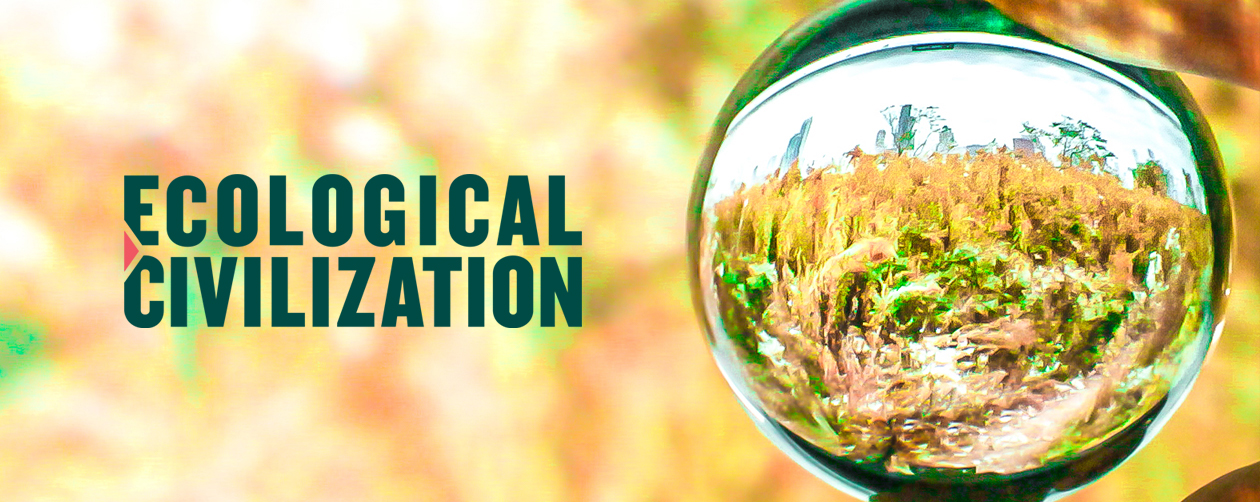
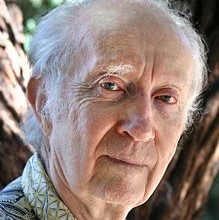 "EcoCiv has the potential to change the world!"
"EcoCiv has the potential to change the world!" "The EcoCiv movement holds immense promise for the flourishing of the Earth Community."
"The EcoCiv movement holds immense promise for the flourishing of the Earth Community."
